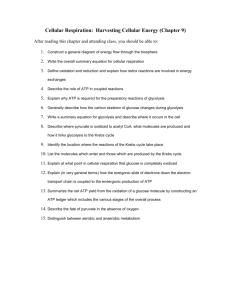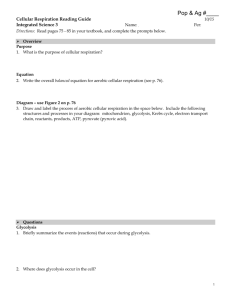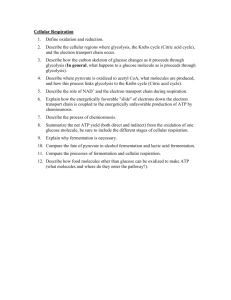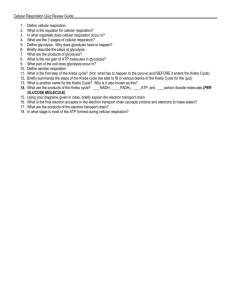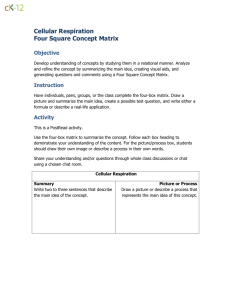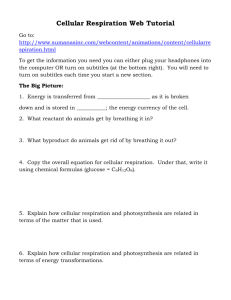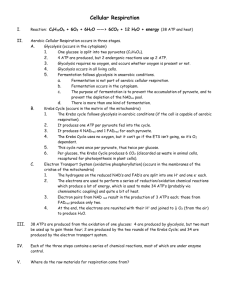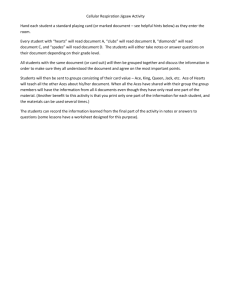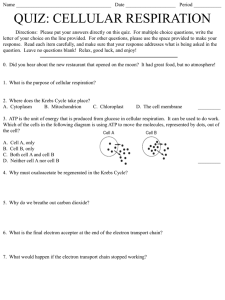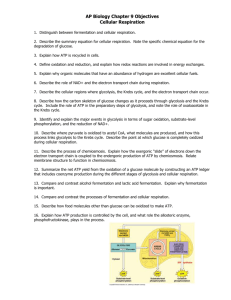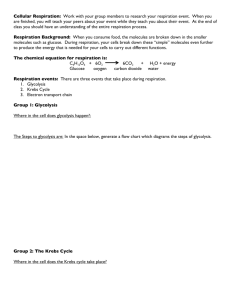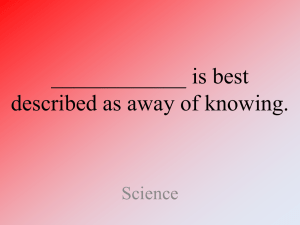Human Population
advertisement
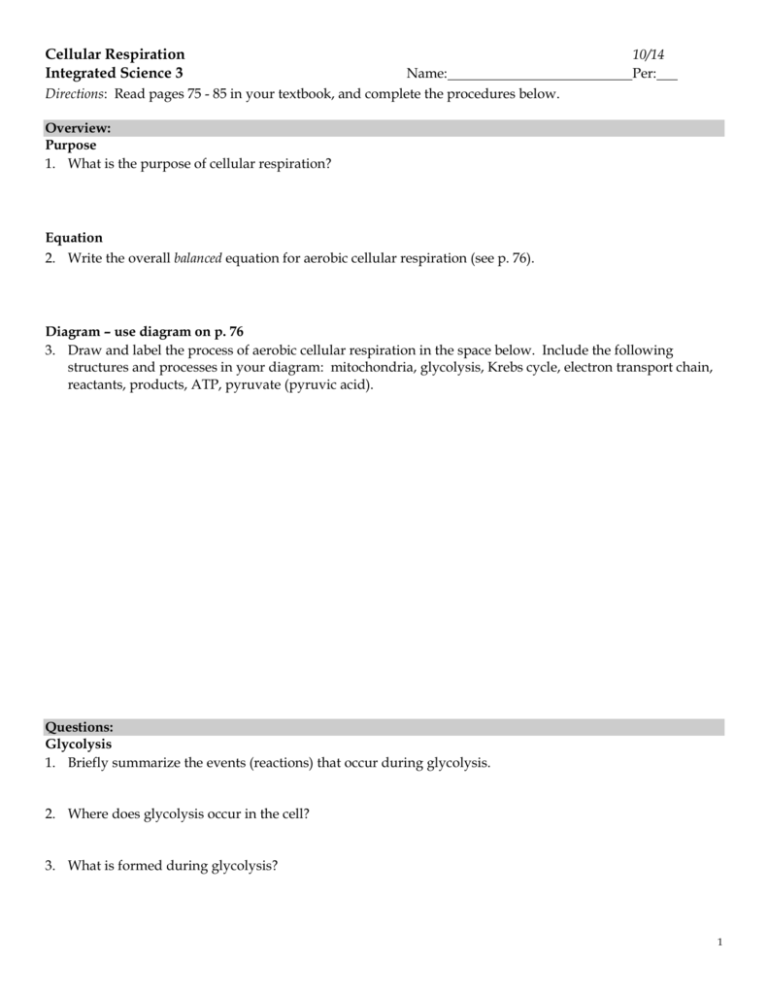
Cellular Respiration Integrated Science 3 Name: 10/14 Per: Directions: Read pages 75 - 85 in your textbook, and complete the procedures below. Overview: Purpose 1. What is the purpose of cellular respiration? Equation 2. Write the overall balanced equation for aerobic cellular respiration (see p. 76). Diagram – use diagram on p. 76 3. Draw and label the process of aerobic cellular respiration in the space below. Include the following structures and processes in your diagram: mitochondria, glycolysis, Krebs cycle, electron transport chain, reactants, products, ATP, pyruvate (pyruvic acid). Questions: Glycolysis 1. Briefly summarize the events (reactions) that occur during glycolysis. 2. Where does glycolysis occur in the cell? 3. What is formed during glycolysis? 1 Krebs Cycle 4. Briefly summarize the events (reactions) that occur during the Krebs cycle 5. Where does the Krebs cycle occur in the cell? 6. What is formed during the Krebs cycle? What is released? Electron Transport Chain and ATP 6. Briefly summarize the events (reactions) that occur during the electron transport chain. 7. Where does the electron transport chain occur in the cell? 8. What is formed during the electro transport chain? What is released? Energy Totals 8. How much chemical energy (in the form of ATP molecules) is produced by the complete breakdown of 1 glucose molecule during glycolysis and aerobic respiration? 9. A unit (mole) of glucose molecules contains 686 kcal. A unit of ATP molecules stores 7.5 kcal. Considering how many units of ATP are produced per unit of glucose, how efficient is the burning of glucose fuel in cellular respiration? Show your work. Is this energy transformation more or less efficient than the 25% efficiency of burning of gasoline fuel in an automobile? Relationships 10. How are cellular respiration and breathing (respiration) related? 11. Analyze the figure at the right and discuss how cellular respiration and photosynthesis are related. 2
